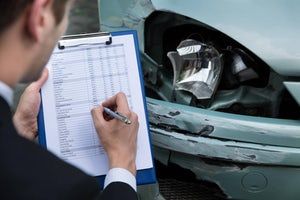
It may come as a surprise to some, but hunting is actually one of the safest sports you can be a part of. Why is that? Because the people who participate have a healthy respect for the rules and regulations involved with hunting safety. Make sure you know how to keep hunting trips safe for yourself and your surroundings before you enter the woods this fall.
Know what you're shooting
That movement could have been your fellow hunting buddies, so be careful you know what you're shooting! If you are any less than 100% sure you are shooting at the correct target, don't pull the trigger! While not required by law in New York, more than 80% of big game hunters and two out of three small game hunters, wear hunter orange. Hunters who wear orange are seven times less likely to be shot and have an exponential advantage over game like deer, who are less sensitive to the longer wavelengths that oranges and reds give out.
Wear fall prevention devices while in trees or ladders
If you are a bow hunter (or similar hunter who climbs trees or ladders), be wise in choosing your position! Tribune Star states that in the last five years, 55% of reported hunting accidents have involved falls from tree or ladder stands. Most of those who fell were not wearing any form of fall prevention device, which could have prevented serious injury. We recommend wearing a full-body harness, which is attached to the tree or ladder as soon as you begin to climb.
Watch exertion levels
Heart attacks are surprisingly common while hunting, so make sure you control your output throughout the day. Staying hydrated and nourished will also help decrease the risk of over-exertion.
Keep your safety on while you walk
This one is self-explanatory. While you walk, keep your safety on to prevent inadvertent firing. However, you should still always treat your gun as if it can fire at any time — even the best firearms can fail because they rely on a mechanical device, just like everything else. Try out thesedifferent field carries which teach how to accurately control your muzzle, keep fingers away from the trigger, and keep your safety on until you're ready to fire.
Keep your barrel clean
Don't let the barrel of your gun get clogged with mud, snow, or excess lubricant. Even a little blockage can cause dangerously increased pressures which may cause the gun to bulge or even burst on firing because the bullet or shot cannot exit the barrel.
Understand your coordinates
Take a phone and/or GPS with you in case you become lost or disoriented, and make sure that device is reliable and fully charged. There are many GPS devices made with built-in hunting waypoints, maps, and information to keep you in the loop while you move.
Stay sober
Discharging a firearm while under the influence is illegal. Statutes vary as to the acceptable limits, but in any case, carrying a firearm after drinking is highly dangerous to you and those around you and is not recommended.
Hunters who wear orange are seven times less likely to be shot.
Stay safe and warm during this hunting season!











